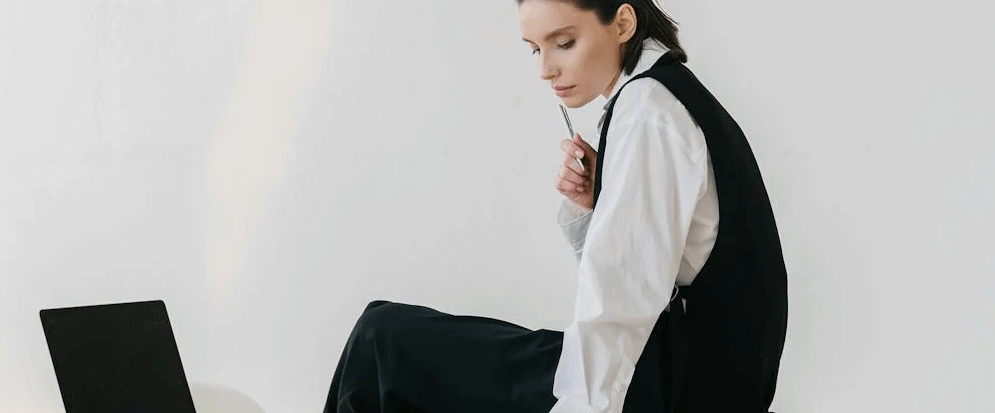
Overstimulation, loss of references, concentration problems … is it still possible to stay focused in today’s world?
Samah Karaki is a biologist, essayist, and doctor in neuroscience. She recently published a hard-hitting book titled “Talent is a fiction: deconstructing the myths around the idea of success and merit.” Plenty of compelling reasons to inquire about her insights regarding the themes explored in this book.
Voir cette publication sur Instagram
For 2026, we have selected “FOCUS” as our watchword: the idea of finding the means to re-focus in a world spinning out of control in 24-7-365 overstimulation. How easy is it to stay focused in today’s world?
It should be a legitimate need but above all, there’s no way around it! We don’t have a multitasking brain. That notion is an absolute illusion. We can’t do ten things at the same time: when we go back and forth between ten different tasks, it’s mentally draining. And in this case, we don’t do things right and make multiple mistakes. The only way to do several things at the same time is when certain functions are automated. For example, driving a car while having a conversation, or thinking while walking. One must have the humility to accept that our attentional and decisional resources are limited and to reflect on how to manage this precious commodity known as my attention.
Much has been said about our shrinking attention spans. Is there anything we can do to reclaim our concentration or is it too late?
Today, human beings spend 45 seconds maximum on an application, which is very taxing on our brain. There is a real cause for alarm: we haven’t changed as a species, yet we fail to exercise our concentration. It’s a muscle that requires skillful management. Concentration is choosing what we focus our attention on. It’s something that is metabolically draining: it requires sugar and oxygen, an active element. The rest fades to black. You can practice: if your mind starts to wander off you must bring it back into focus. Do-it-yourself projects and cooking are simple activities that exercise our concentration. Walking. Listening to a story.
For us, “Focus” is also about building our own lens to see the world through, founded on our personal experience rather than adhering to established rules and doctrines.
I’ve noticed a nostalgia for the schools and society of yesteryear, for the way we communicated in the olden days. I have my doubts because generally speaking when you ask an older person which period they’re nostalgic about, it will always be about their youth, no matter what! Because when we’re young, we feel like we have more control over the world. Humanity has consistently moved forward by feeling eclipsed by the creations it spawned, and then by going on to something new only to feel once again outdone. The brain sits with uncertainty like it would food poisoning: it just wants it to end. To stop the uncertainty, it clings for dear life to its certainties, what it knows to be familiar and reassuring. Yet it’s critical to build up a tolerance to ambiguity and uncertainty. A wiser takeaway would be to surrender to uncertainty by considering it an opportunity. By collectively asking ourselves: what do we aim to control, experiment, and conserve?
Voir cette publication sur Instagram
What do you think of this generation finding refuge in parallel universes and fantasy narratives?
Life is accepting to be touched by others, that fate operates. Experience happens in the living, not in a constant state of introspection. These new parallel worlds are really just about recuperation, a patchwork of culturally remote beliefs, revealing our capacity to project into some imaginary world, to recharge our batteries via entities which are not physically tangible. But it’s important to take all this as a game. I’m not advocating for fatalism nor immobility, but to take these stories that we tell ourselves to escape the world’s hardships far less seriously. Because we’re losing the core of real collective organization: action. Balance of power demands organization. This is why nothing ever changes, and reactionary verbiage is gaining ground: because we’re struggling to stay organized. We’re consumers relying on individual treatments, indicative of our inner turmoil, and we can’t get it together to search for the root cause of this suffering.
We have also pinpointed a profile looking to give new meaning to the notion of collective…
When referring to the collective, we must accept that this collective is always changing. It’s not frozen-in-time; it’s unlike anything we’ve ever seen before. To foster community, you must surrender to the uncertainty of the other. And if we’ve painted a picture-perfect ideal of collective living, we’re all wrong. We must make do with others. Creating a community means going through constant change and accepting that we can’t always stick to our guns. We can’t say “Hop onboard, I’ve got the right project”: because it’s doomed to fail. It’s important to foster a mindset of sharing, without considering one model as superior to the next. There are beautiful things we should hold onto, and I think this is the very idea behind human memory, but one must accept that everything changes, people, situations, and that we don’t know in advance how we’ll react. It makes sense to seek predictability when we’re exhausted: we just want to get home, find the couch and the on/off switch. But we must be willing to accept a little bit of disorderly imbalance in our lives: like a boat, it rocks when it comes to a stop. When it moves forward, it rocks less.
What subjects are you planning to explore next? You’ve spoken of success and effort.
I will advance along the same lines: you’re not born with talent, it is shaped by experience, but this is also true of moral behavior, which labels us as either good or bad, open, or reactionary… If we think some people are just naturally more reactionary and others more progressive, we’re all wrong. There are reasons people are the way they are. We must wrap our brains around the fact that we can’t fall into the dangerous game of pigeonholing human beings by saying “Women are this, young people are like this, the elderly are like this”. In fact, not at all, there are reasons we do what we do. When we finally get that we can say: if there are reasons, then what kind of societal structure can we establish to propagate these behaviors? This isn’t about shifting blame away from individuals but admitting that there are sometimes crushing pressures which drive us to become more reactionary, or calmer or more tolerant. It’s not written in our genes nor our hormones: these are the stories we build together.
Voir cette publication sur Instagram




